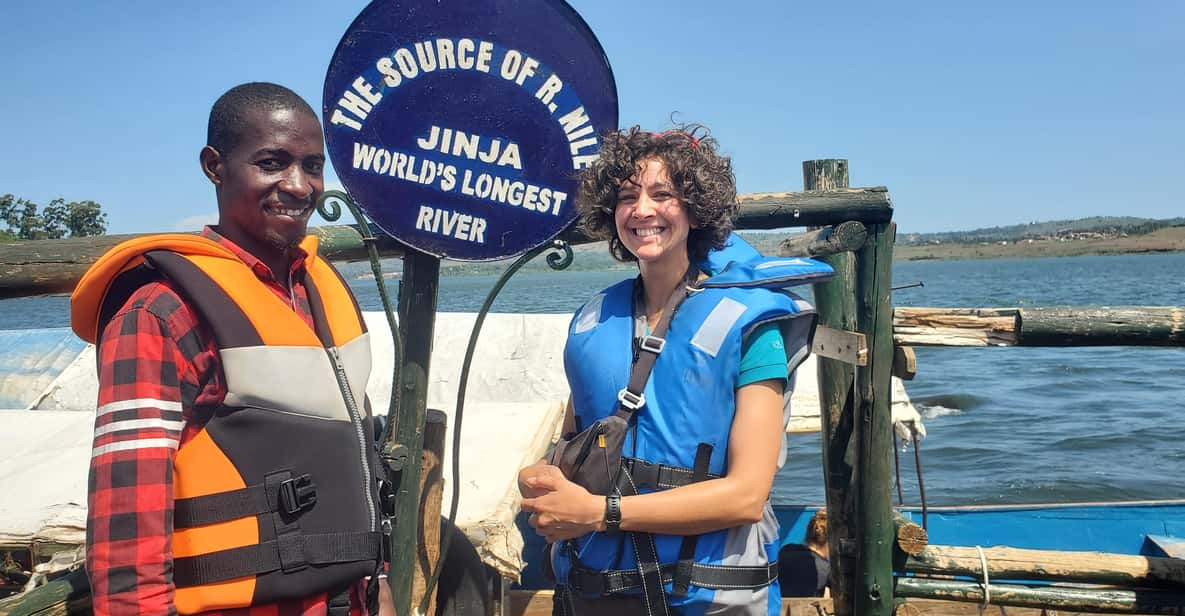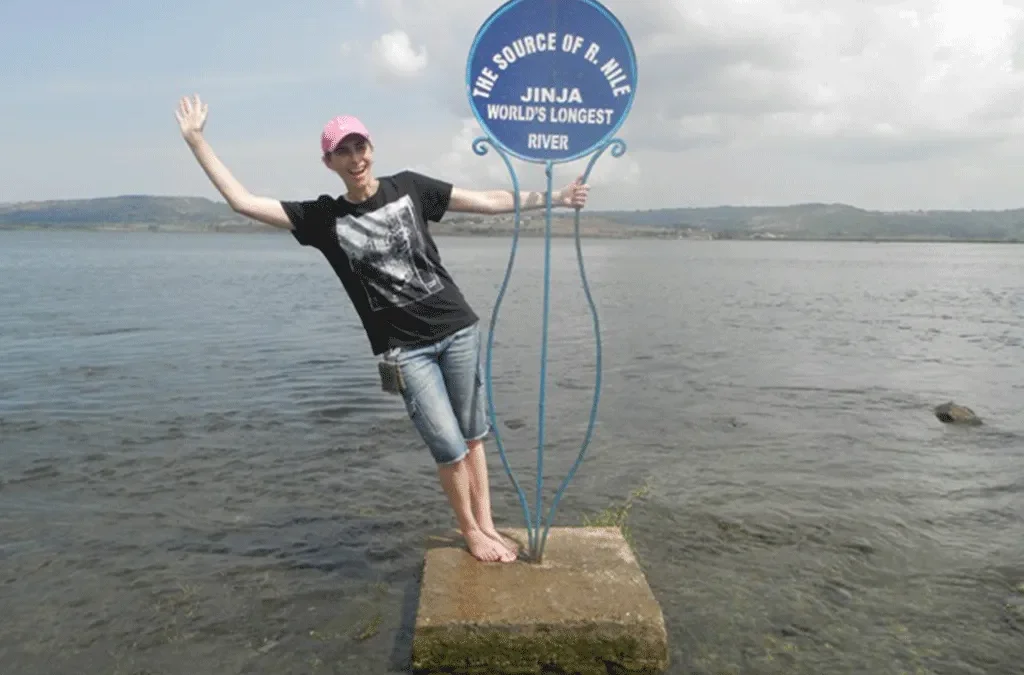Festival Guide at Source of the Nile: Insider Tips for Long-Stay Travelers
There are few places in the world where the majesty of nature and the vibrancy of culture converge as seamlessly as they do at the Source of the Nile in Jinja, Uganda. This legendary location, revered for centuries as the point where the world’s longest river begins its epic journey northwards, is more than just a geographical wonder. It is also a stage for festivals, cultural showcases, music events, and food experiences that capture the beating heart of Uganda. For travelers who are seeking more than a fleeting visit, those who choose to remain longer and immerse themselves deeply, the Source of the Nile becomes a canvas of celebration, discovery, and memory.
Festivals here are not merely performances to be observed; they are living traditions. Drums echo through the night, dances weave stories of kingdoms and heritage, flavors of Ugandan cuisine tempt the senses, and the Nile itself glimmers with symbolic power, reminding every visitor of the deep interconnection between land, water, and people. For long-stay travelers, the appeal of these festivals is enhanced by the opportunity to become part of the rhythm rather than a mere spectator. Yet, this immersion requires guidance—knowledge of when to attend, how to prepare, where to stay, and how to navigate the cultural dynamics respectfully.
This guide unfolds as both an orientation to the festival world of the Source of the Nile and a practical companion for travelers planning extended stays. It moves from the history of Jinja’s celebratory culture to insider tips on accommodations, culinary journeys, health, cultural etiquette, and long-term engagement strategies, offering a roadmap for experiencing this vibrant destination at its fullest.
The Significance of the Source of the Nile
Long before the Nile was a subject of colonial exploration and international fascination, it was revered by the peoples of East Africa as a sacred force of life. Its origins at Jinja were not only geographical but also spiritual, believed to embody creation, fertility, and continuity. Today, while its mythic aura endures, it has also become a hub of tourism, culture, and recreation, drawing travelers from every corner of the globe.
Festivals held here embody this dual identity: they celebrate ancient heritage while embracing modern influences. From traditional dance and storytelling gatherings to international events blending music genres, fashion, and gastronomy, the Source of the Nile has emerged as a cultural crossroad. Long-stay travelers who time their journeys to coincide with these festivals witness the soul of Uganda in a way that short visits rarely allow.
Understanding the Festival Landscape
Festivals at the Source of the Nile are diverse, each carrying its own spirit and purpose. Cultural events celebrate Uganda’s kingdoms and ethnic traditions through music, dance, and storytelling. Music festivals bring together regional and international performers, infusing the riverside with vibrant beats that reflect both heritage and modernity. Food festivals celebrate Ugandan cuisine while incorporating global culinary influences, allowing travelers to experience the flavors of the Nile basin in creative expressions.
Many of these events are seasonal, tied to agricultural rhythms or national holidays. Others are annual spectacles, marked by extensive preparation and attracting international audiences. For long-stay travelers, being present for multiple events offers a layered appreciation, revealing not only the diversity of Uganda’s cultural expressions but also the shared themes of unity, celebration, and reverence for the river itself.
Preparing for a Long Stay
Choosing to remain at the Source of the Nile for weeks or even months requires practical planning. Long-stay travelers must think beyond itineraries that only last a few days. Accommodation becomes central, with considerations of affordability, comfort, and proximity to festival sites. Many travelers opt for guesthouses or riverside lodges, where extended stays come with discounted rates and opportunities to bond with hosts who often share insider festival information.
Budgeting for an extended stay is also important. Festivals involve ticket costs, meals, and transportation, and long-term travelers must allocate resources for daily living in addition to celebratory activities. Safety considerations such as securing reliable transport, ensuring medical readiness, and maintaining communication with family or friends also come to the fore.
Preparedness is not only logistical but also mental. Long-stay travelers must embrace flexibility, as festival schedules may shift and cultural expressions often unfold organically rather than with rigid punctuality. Patience and openness become invaluable companions in navigating the dynamics of celebration along the Nile.
The Foodie Experience at Festival Time
One of the defining elements of festivals at the Source of the Nile is the culinary richness on display. Ugandan cuisine is deeply tied to its agricultural abundance, and festivals become opportunities to taste the country’s food in its most vibrant form. Long-stay travelers are treated to a rotation of dishes that move beyond daily staples to embrace celebratory feasts.
The smoked and grilled tilapia from Lake Victoria and the Nile remains a signature, often seasoned with local spices and served alongside matoke or cassava. Stews rich in groundnut paste, vegetables prepared with simsim, and meats cooked in banana leaves add depth to the dining tables. Festivals also highlight street food culture: skewered meats, roasted maize, and chapati-based rolexes provide quick, satisfying meals that are as much social as they are culinary.
For long-stay travelers, these food encounters become part of daily rhythm. Lodges often organize communal dinners during festival seasons, bringing together guests and locals. Food tours in Jinja town complement the riverside experience, offering exploration of markets where spices, fresh produce, and regional specialties await. The culinary experience thus transforms from indulgence into cultural education, linking taste with history, agriculture, and community life.
Immersing in Music and Dance
If food anchors the body during festivals, music and dance anchor the spirit. Traditional drumming groups, with rhythms that have been preserved through generations, provide both entertainment and education. Dances tell stories of harvests, courtship, and spiritual beliefs, performed with passion and precision that captivates audiences.
Long-stay travelers are uniquely positioned to engage beyond observation. Many cultural centers and community groups around Jinja offer opportunities for visitors to learn drumming or join dance rehearsals. Participation allows travelers not only to understand the movements but to feel the cultural resonance within their own bodies. Over weeks, what begins as curiosity often transforms into appreciation, and sometimes even mastery, making long-stay immersion invaluable.
International music festivals also bring eclectic sounds to the riverside, from Afrobeat to reggae, electronic music to jazz. These events create spaces where locals and global citizens gather, united by sound and celebration. For long-stay travelers, attending multiple music-focused events reveals the adaptability of the Source of the Nile as both a sacred stage and a modern festival arena.
Navigating Cultural Etiquette
Engaging with festivals requires not only enthusiasm but also cultural sensitivity. For long-stay travelers, this becomes even more important, as deeper immersion often leads to greater interaction with local communities. Respect for traditions, greetings, and dress codes is fundamental.
During cultural festivals, modest dress is often appreciated, particularly when events involve spiritual or heritage rituals. Greetings, offered with warmth and patience, open doors to richer connections. Photography must always be approached with respect, seeking permission before capturing images of performers or participants.
Language also plays a role in cultural etiquette. While English is widely spoken, learning a few phrases in Luganda or Lusoga can transform interactions. Locals often respond with appreciation when travelers make the effort to engage in their language, however simple the words may be.
For long-stay travelers, cultural etiquette becomes a daily practice. Over time, these small gestures of respect accumulate, turning outsiders into trusted guests who are not only observing but also participating with dignity.
Health and Safety for Extended Stays
Long-stay travel requires careful attention to health and safety. The festive atmosphere can be overwhelming, and without preparation, fatigue or illness may disrupt the experience. Ensuring vaccinations, carrying malaria prophylaxis, and using mosquito repellents are basic but essential steps. Staying hydrated, particularly during outdoor events under the Ugandan sun, is equally important.
Medical facilities are available in Jinja, but long-stay travelers should carry a basic first aid kit for immediate needs. Hygiene practices, such as handwashing before meals and consuming thoroughly cooked food, protect against common illnesses.
Safety during festivals also involves awareness of personal belongings. Crowded events can attract opportunistic theft, and travelers are advised to carry only what is necessary, keeping valuables secure. Group participation enhances safety, and building connections with fellow travelers or locals ensures mutual support.
Balancing Celebration with Reflection
Festivals at the Source of the Nile are not only about excitement but also about reflection. Long-stay travelers have the luxury of alternating between vibrant participation and quiet contemplation. Watching the Nile flow at sunrise after a night of drumming, or sitting quietly with locals to share stories, provides balance that enriches the overall experience.
Many travelers use the Source of the Nile as a base for broader explorations. Day trips to Mabira Forest, rafting adventures along the Nile’s rapids, or cultural visits to Busoga Kingdom enrich the stay while offering respite between festival events. This balance of high-energy participation and restorative exploration ensures sustainability for long-stay experiences.
Insider Tips for Long-Stay Travelers
Remaining at the Source of the Nile for an extended period transforms the traveler into part of the community, but this transformation requires insider strategies. Accommodation close to the river provides immediate access to festival venues but booking early during peak seasons ensures availability. Negotiating long-stay discounts is both possible and advisable.
Building relationships with locals enhances the insider experience. Festival organizers, market vendors, and guesthouse owners often share information about upcoming events, private gatherings, or less-publicized traditions. Long-stay travelers who invest time in these relationships gain access to experiences rarely available to short-term visitors.
Finally, pacing is critical. Festivals are immersive, but energy must be conserved. Long-stay travelers who plan rest days, balance food indulgence with healthy meals, and maintain consistent routines find themselves able to enjoy festivals with sustained enthusiasm.
Long Stays as Pathways to True Immersion
Festivals at the Source of the Nile embody the soul of Uganda: dynamic, welcoming, diverse, and deeply rooted in history. For long-stay travelers, the experience is magnified, offering opportunities not only to witness but to live the rhythms of celebration. Through food, music, dance, cultural etiquette, and reflective balance, the extended journey becomes transformative.
The insider tips of planning carefully, respecting culture, maintaining health, and building relationships ensure that long-stay travelers enjoy both safety and authenticity. What begins as a festival journey often evolves into a personal story of growth, discovery, and connection to one of the world’s most extraordinary rivers.
For those inspired to embark on such immersive experiences, it is recommended to book your African tours and safaris with WildHorn Africa, a trusted partner that combines expertise with passion to create journeys where every long stay becomes a celebration of culture, safety, and adventure.






